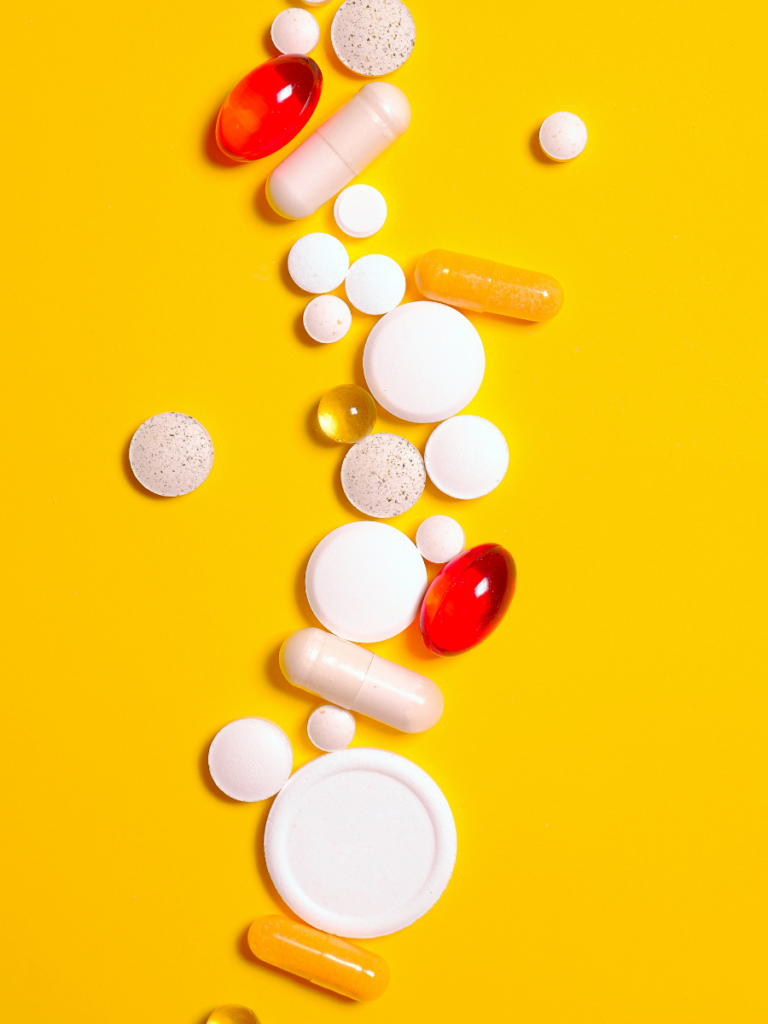What are Over-the-counter muscle relaxers?
Most people who take muscle relaxers suffer from muscle spasms, which occur when one or more of your muscles cramps or twitches involuntarily. These spasms can often be uncomfortable and extremely painful. While most individuals can take over-the-counter muscle relaxers like Tylenol or Advil to alleviate the pain, these medications may not be suitable for people who have liver problems or stomach ulcers.
Instead, their doctors may prescribe them a muscle relaxant. While these medications can be helpful, the side effects of muscle relaxers can also be just as uncomfortable and painful as the problems they’re meant to treat. Over-the-counter muscle relaxers and prescription muscle relaxants can be addictive and can also cause severe symptoms
Over-the-counter muscle relaxers or muscle relaxants are medications used to treat acute muscle pain and discomfort caused by muscle spasms. Muscle spasms are involuntary contractions that cause excessive strain in muscles and are often associated with conditions such as lower back pain and neck pain.
Medications used as muscle relaxers can differ in their chemical structures and the way they work in the brain. In general, over-the-counter muscle relaxers act as central nervous system depressants and cause a sedative effect or prevent your nerves from sending pain signals to your brain. The onset of action is rapid and effects typically last from 4-6 hours.

Carisoprodol, also known by the brand name Soma, is a prescription skeletal muscle relaxant. It is typically prescribed to relieve pain caused by muscle injuries like strains and sprains. This drug comes in tablet form and is taken by mouth, often several times a day when treating an injury. Soma medication is typically combined with physical therapy and other treatments to treat muscle pain. However, some people become addicted to carisoprodol and use it other than how it is intended.
What Do Over-the-Counter Muscle Relaxers Do?
We have two types of muscles, striated and smooth. Molecules within muscle fibers are responsible for muscle contraction. A muscle spasm is an involuntary muscle contraction that can be very uncomfortable and painful. Contractions occur when the muscle lacks certain nutrients. Nutrient deficiency in the muscles can occur for a variety of reasons, such as overuse, fatigue, exposure to excessive heat, diabetes, kidney disease, and more.
Over-the-counter muscle relaxers (relaxants) work by reducing stiffness or tightness in the muscles, which reduces pain and discomfort. Some may target the central nervous system while others target the muscle directly. Some common over-the-counter muscle relaxers include baclofen, diazepam, tizanidine, carisoprodol (Soma), cyclobenzaprine (Flexeril), and methocarbamol.
Like all medications, over-the-counter muscle relaxers should not be misused, shared, or abused. Taking more muscle relaxer pills than the prescribed dose or taking them more frequently than directed is highly dangerous and can lead to addiction. Over-the-counter muscle relaxants should also never be mixed with alcohol or antihistamines. Despite the severity of muscle relaxer side effects, quitting them can be difficult to do for people who have become dependent on them.

Effects of Over-the-counter muscle relaxers
Some of the common side effects of over-the-counter muscle relaxers include:
- Drowsiness
- Dizziness
- Agitation
- Irritability
- Headache
- Nervousness
- Dry mouth
- Decreased blood pressure
The most commonly prescribed muscle relaxers are carisoprodol (Soma) and cyclobenzaprine (Flexeril). According to data from IMS Health, there were 4.2 million prescriptions of Soma and 28.4 million prescriptions of Flexeril dispensed in the United States in 2017.
Over-the-counter Muscle Relaxers Abuse
Muscle relaxers have the potential for abuse and addiction. Prolonged use can lead to increased tolerance and physical dependence, especially with Soma. For this reason, muscle relaxers are intended as a short-term treatment not to be prescribed for more than 2-3 weeks.
Unfortunately, many individuals take muscle relaxers alone or in combination with other illicit drugs for nonmedical reasons, such as to produce or enhance feelings of euphoria and dissociation. According to the Drug Enforcement Administration, Soma is one of the most commonly diverted drugs in the United States. Evidence also indicates prevalent misuse of Flexeril. In 2010 there were over 12,000 emergency room visits associated with Flexeril, and in 2016 over 10,000 calls to the Poison Control Centers had involved Flexeril.
Over-the-counter muscle relaxers abuse can lead to serious dangers such as an increased risk of overdose, which can result in:
- Stupor
- Hallucinations
- Seizures
- Shock
- Respiratory depression
- Cardiac arrest
- Coma
- Death
Over-the-counter Muscle Relaxers Addiction Signs
According to the Drug Enforcement Administration, abusers often combine cyclobenzaprine with these depressants to produce or enhance psychoactive effects. Though it is not a controlled substance, the DEA has recorded anecdotal reports of use to induce euphoria and relaxation.
Combining alcohol and muscle relaxers can exacerbate the side effects of both, as well as increase the risk of seizures, blackout, respiratory distress, and overdose. Individuals who combine drugs and alcohol are definitely on the list of individuals who show signs someone is addicted to muscle relaxers.
Other signs someone is addicted to muscle relaxers:
- They take their medication longer than needed or prescribed
- They fake back injuries or back pain to obtain prescriptions
- They go through a prescription quickly and come up with excuses for an early refill
- They spend an inordinate amount of time thinking about muscle relaxers or plotting how to maintain their supply
- They’re unable to stop using muscle relaxers, even when a problem is pointed out to them
- They ask for help
Effects of Soma (Carisoprodol)
Carisoprodol causes muscle relaxation, sedation, and decreased anxiety. However, muscle relaxants like carisoprodol can also cause various unintended side effects. These side effects can become more severe, and even dangerous when the drug is misused. The National Library of Medicine lists the following side effects of carisoprodol:
- Drowsiness
- Dizziness
- Increased clumsiness
- Headache
- Increased heart rate
- Upset stomach and vomiting
- Skin rash
Some side effects, like difficulty breathing, fever, weakness, or burning in the eyes, can indicate a severe reaction to carisoprodol and require immediate medical attention. The effects of carisoprodol generally set in within 30 minutes of taking the drug and generally last 4-6 hours.
Abusing carisoprodol can have many adverse effects on the body. The Drug Enforcement Administration lists the following physical effects:
- Agitation
- Irritability
- Depression
- Temporary loss of consciousness
- Tachycardia
- Hypotension
- Extreme weakness
- Cervical spine injury
- Difficulty speaking
- Temporary loss of vision
- Double vision
- Dilated pupils
- Euphoria
- Confusion
- Disorientation
These effects are typically short-lasting. However, continued abuse of the drug can cause permanent damage to the body. The heart, lungs, liver, kidneys, and brain can all be adversely affected by the abuse of prescription medications.
Alcohol and over-the-counter Muscle Relaxers
Like muscle relaxers, alcohol also depresses the central nervous system. When alcohol is consumed with over-the-counter muscle relaxers the side effects are exacerbated. This can be very dangerous, leading to symptoms like:
- Blurred vision
- Urine retention
- Extreme dizziness
- Extreme drowsiness
- Low blood pressure
- Fainting
- Memory problems
- Liver damage
- Increased risk of overdose
It is recommended to not drive or operate heavy machinery when under the influence of over-the-counter muscle relaxers. It is especially important to avoid drinking, as combining muscle relaxers with alcohol greatly increases your risk of an accident.
Over-the-counter muscle relaxers Withdrawal and Treatment
Regular use of over-the-counter muscle relaxers causes the brain to become used to its effects. If you attempt to suddenly stop using muscle relaxers you may experience withdrawal symptoms. Depending on the specific drug and how long you have been using it, there are various treatment options available to help you overcome your addiction.
Flexeril withdrawal causes mild symptoms such as nausea, headache, drowsiness, malaise, and discomfort for many people. Symptoms tend to peak about 2-4 days after you last took the Flexeril, although in some people, withdrawal symptoms may last for up to 1-2 weeks. For many people, Flexeril detox can be done at home. However, if Flexeril addiction is accompanied by alcohol or opioid abuse, the withdrawal symptoms from these other substances can be severe. In these situations, it may be best to undergo professional medical detox.
Soma withdrawal is usually more severe and can include symptoms like hallucinations and seizures. For your safety and comfort, finding an inpatient treatment program that includes a detox program to manage withdrawal symptoms is often best. After detox, patients can transition into the actual treatment phase of the program. Some people may not require a supervised detox program and can undergo treatment on an outpatient basis.

Reclaim your life from over-the-counter muscle relaxer abuse with dual diagnosis rehab in Washington
Over-the-counter muscle relaxers, abuse, and addiction are serious conditions that can cause major health, social, and economic problems that should not be taken lightly. We Level Up dual diagnosis rehab Washington can provide you, or someone you love, the tools to recover from this with professional and safe detox treatment. Feel free to call us to speak with one of our counselors. We can inform you about this condition by giving you relevant information. Our specialists know what you are going through. Please know that each call is private and confidential.
We Level Up Washington Mental Health Center: Primary Mental Health Treatment with Secondary Co-Occurring Treatments
The We Level Up Washington primary mental health center stands ready to help. Offering secondary treatment programs for underlying conditions like muscle relaxer addiction that frequently fuels harmful behaviors. Taking that first step to get the professional support you need can be life-transforming.
We know how mental health disorders and secondary co-occurring substance abuse diagnoses directly affect one another. The We Level Up Washington treatment center provides recovery programs through science-based mental health treatments that can help you feel better. Call us now for a free mental health evaluation!
Inpatient medical detox and residential primary addiction treatment may be available at affiliated facilities at other We Level Up Treatment Centers locations beyond the Washington treatment facility.





